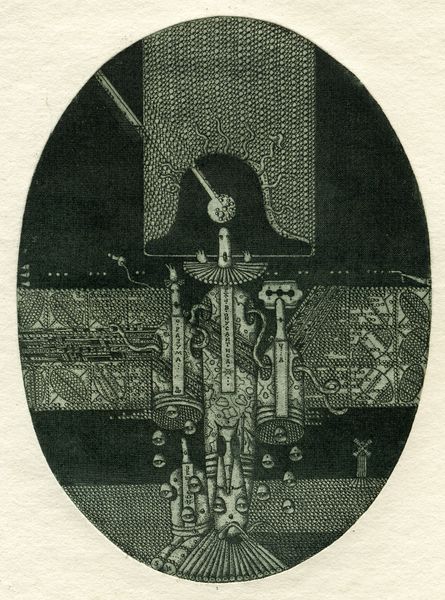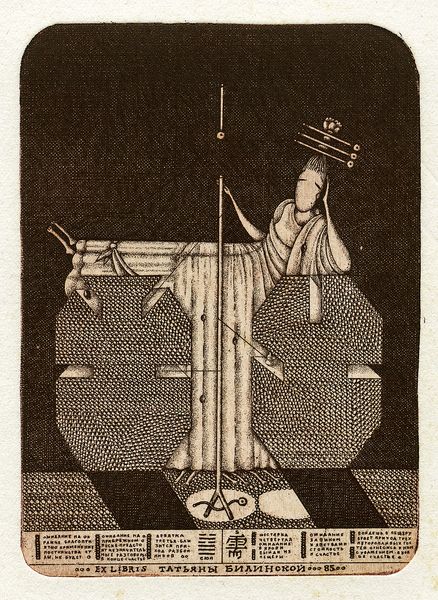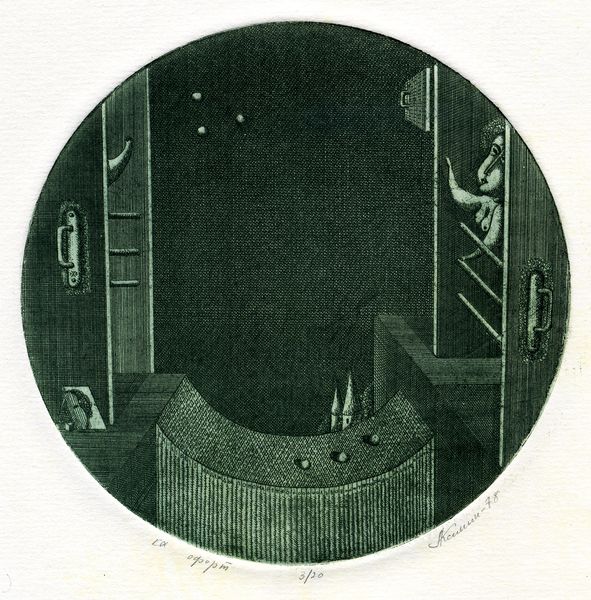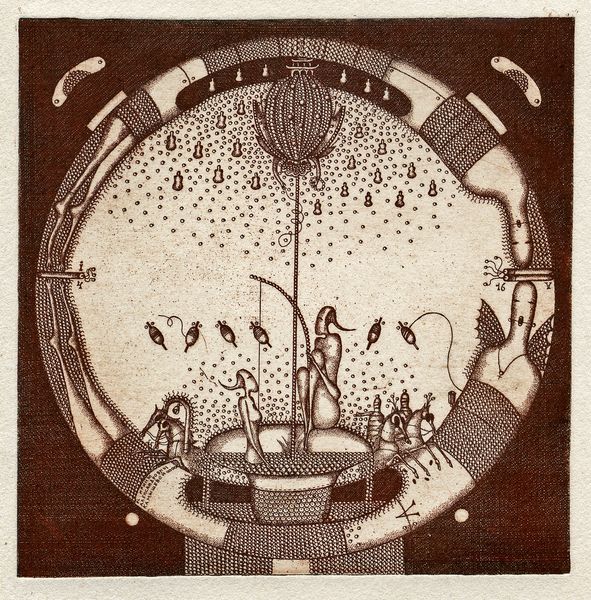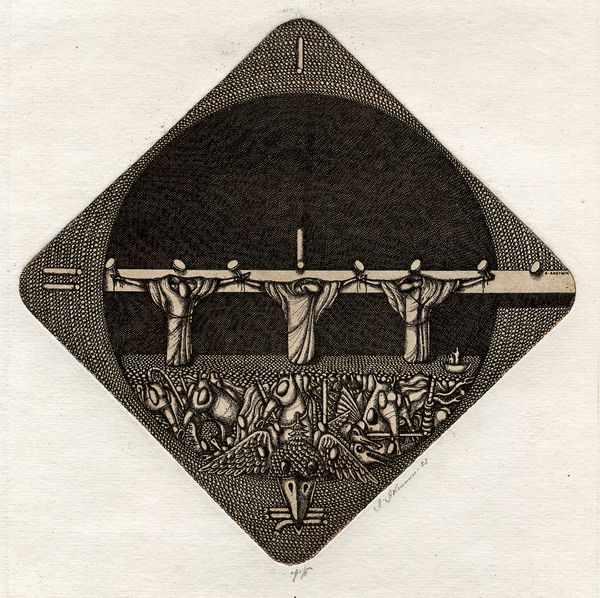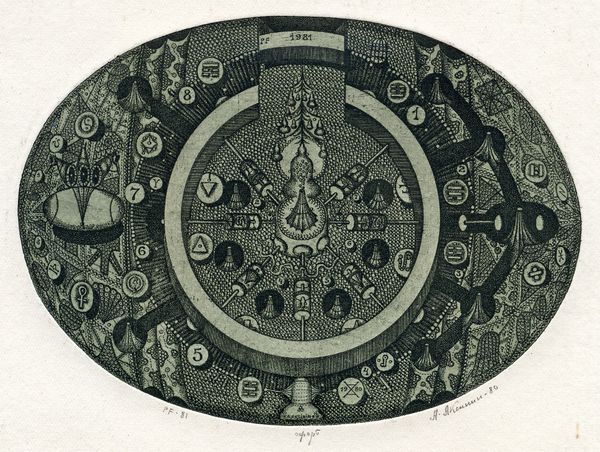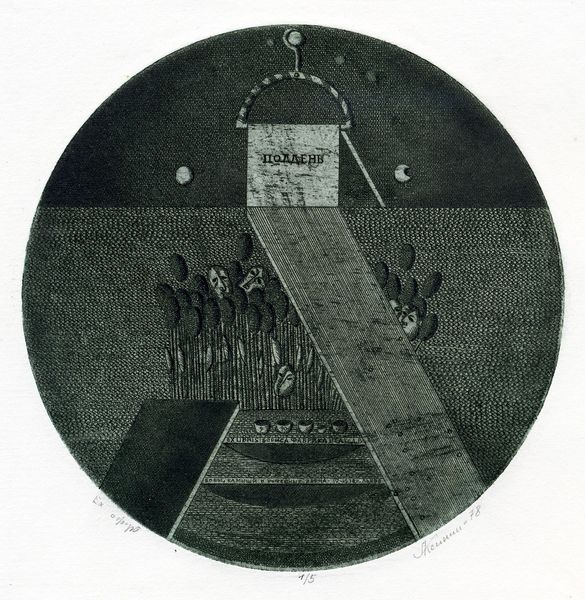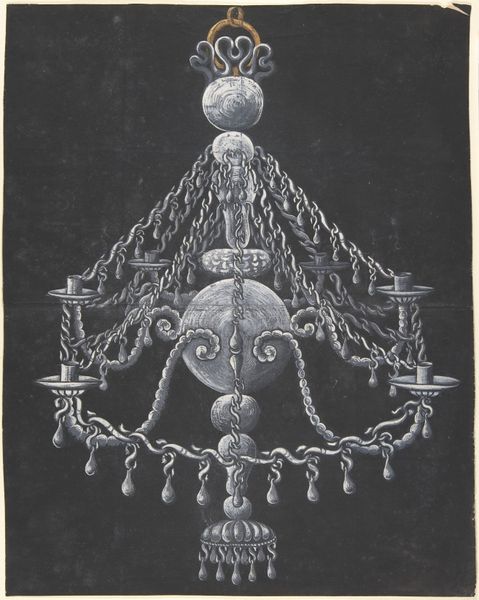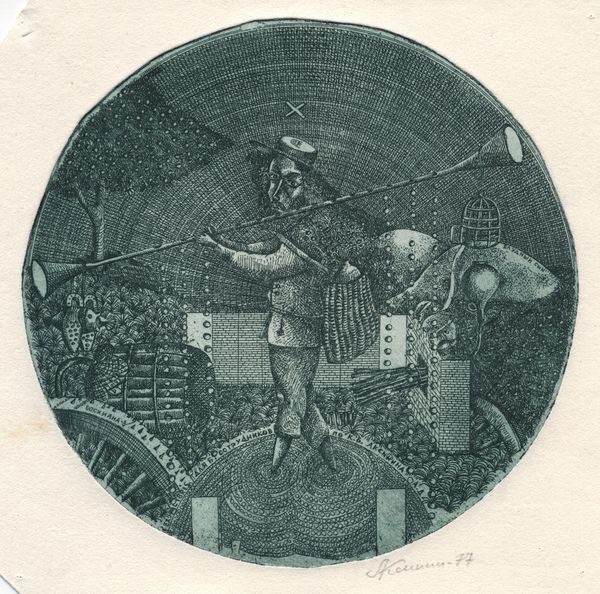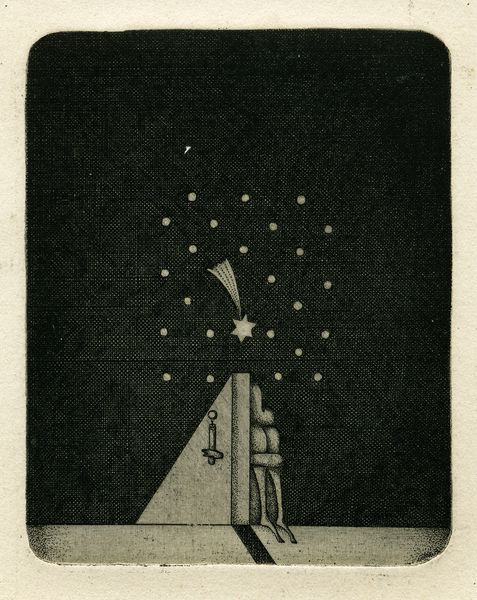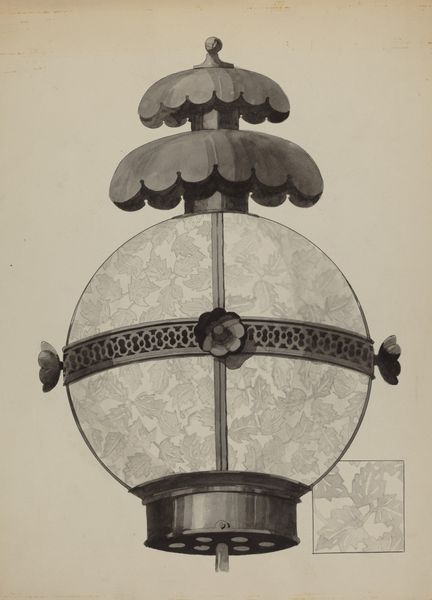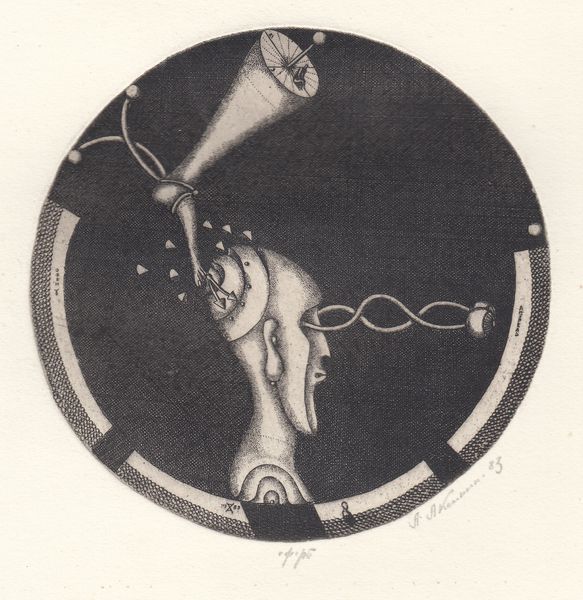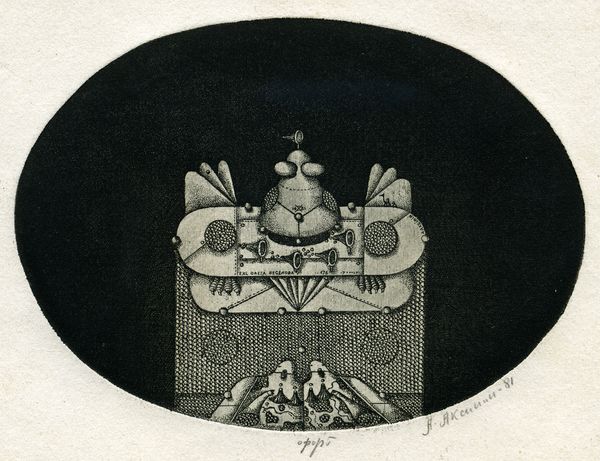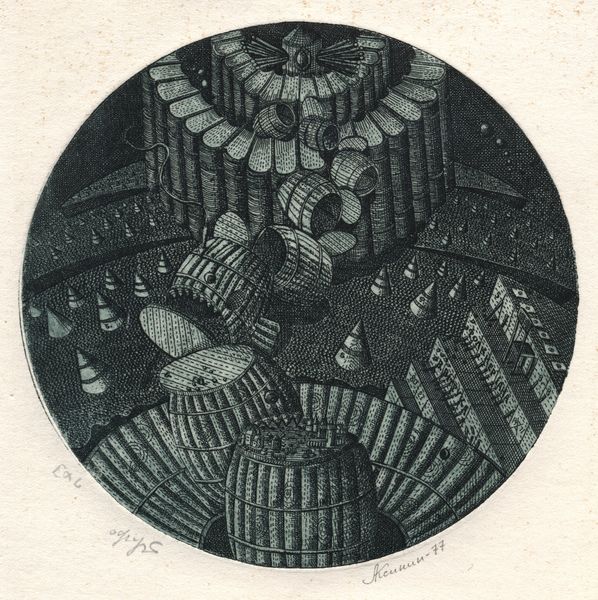
drawing, print, ink
#
drawing
#
blue ink drawing
# print
#
old engraving style
#
fantasy-art
#
figuration
#
ink
#
line
#
surrealism
Copyright: Oleksandr Aksinin,Fair Use
Editor: Here we have Oleksandr Aksinin's 1981 ink drawing and print, "Exlibris of Vera Labunska." It's got this dreamlike quality, with figures riding these strange creatures on what looks like a carousel, all rendered in meticulous detail. How do you interpret this work, especially given its time? Curator: It’s fascinating how Aksinin blends playful imagery with a distinctly unsettling tone. Consider the political context of 1981, the late Soviet era, especially in Ukraine where Aksinin was active. Surrealism often became a coded language, a way to critique the absurdity and oppression of the system without directly confronting it. Do you think this image hints at such social commentary? Editor: I can see that. The figures seem trapped, circling endlessly, which could be a metaphor for the stagnation of Soviet life. But why choose the format of an exlibris, a bookplate? Curator: Exactly! The exlibris, traditionally a mark of ownership and intellectualism, becomes subverted here. Whose books did this artwork grace? Perhaps a member of the intelligentsia who was finding solace or escape in literature from the increasingly stifling reality. The fantasy becomes both a personal refuge and a quiet form of rebellion. It uses recognizable forms to create an estranging experience that speaks directly to the mood and anxieties of the intelligentsia at that time. Editor: That makes so much sense! It’s not just a fantastical image, but a commentary embedded in the art world. I learned so much about how artists navigate oppressive systems! Curator: Indeed. Art is always speaking within a specific social and institutional landscape. Thinking about how power structures shape art production makes looking so much richer.
Comments
No comments
Be the first to comment and join the conversation on the ultimate creative platform.
